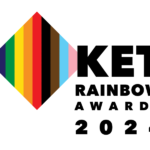The recent Miss Belgium pageant has offered notable outcomes that align with broader discussions on diversity and representation in societal institutions, including beauty contests. This year’s event highlighted significant developments that may interest observers from various communities, including feminist and LGBTQIA+ circles.
Lennie Blockmans, a trans woman who recently featured on the cover of Ket Magazine, was awarded Miss Congeniality by her fellow contestants. This title, reflective of peer recognition, suggests a growing acceptance and inclusivity within the pageant for individuals of diverse gender identities. Blockmans’ recognition in the competition is a step towards wider representation in public platforms, which may resonate with ongoing discussions about visibility and equality for the LGBTQIA+ community.
Miss Belgium 2024 : The multifaceted nature of beauty
In the same competition, Kenza Johanna Ameloot, a 22-year-old with a mixed Rwandan-Belgian heritage, clinched the title of Miss Belgium. Ameloot, an international business student and model, embodies a blend of cultural identities, reflecting the multifaceted nature of beauty. Her victory, succeeding Emilie Vansteenkiste as Miss België and Miss Universe Belgium, brings to the forefront the evolving criteria within beauty pageants that appear to value diversity and intellect alongside traditional notions of aesthetics.
These outcomes from the Miss Belgium pageant might be seen as indicative of a gradual shift in the landscape of beauty contests, toward embracing a broader spectrum of backgrounds and stories. The recognition of Blockmans and the crowning of Ameloot can be viewed in the context of ongoing dialogues about what constitutes beauty and who is represented in such competitions.
Relevance of beauty pageants
While the achievements of Blockmans and Ameloot are noteworthy within the context of their personal journeys and the communities they represent, they also prompt reflection on the role and relevance of beauty pageants in contemporary society. For some, these developments may highlight progress in inclusivity and representation. For others, they may raise questions about the inherent dynamics of beauty competitions and their place within feminist and progressive discourses.
As discussions about diversity, representation, and equality continue to evolve, the outcomes of the Miss Belgium pageant offer a moment for contemplation on how traditional institutions are responding to these critical conversations. Whether viewed as milestones or as points of debate, the recognitions of Blockmans and Ameloot contribute to the broader discourse on inclusivity, highlighting the complexities and ongoing nature of societal progress.
Photo – Instagram : @Lennie_fromtheblock
You may also like
-

Café Le Fontainas: A Community Effort to Restore an Icon
After a period of closure, Café Le Fontainas is poised for a comeback. Supported by
-

Ex Aequo Marks 30 Years: Reflecting on a Journey of HIV Advocacy
Ex Aequo, the community association for gay men’s health, is celebrating its 30th anniversary this
-

Let’s Celebrate! Lesbian* Visibility Week
Excited for the Lesbian* Visibility Day? Get ready for the Lesbian* Visibility Week! Several lesbian
-

Care Must Go On: Celebrating Lesbian* Visibility
On April 26th, the 3rd edition of Care Must Go On will be held. The
-

Deadline Extended: Submit Your Entries for the First KET Rainbow Awards 2024 by April 29
Good news! The deadline to enter the first-ever KET Rainbow Awards 2024 has been moved
